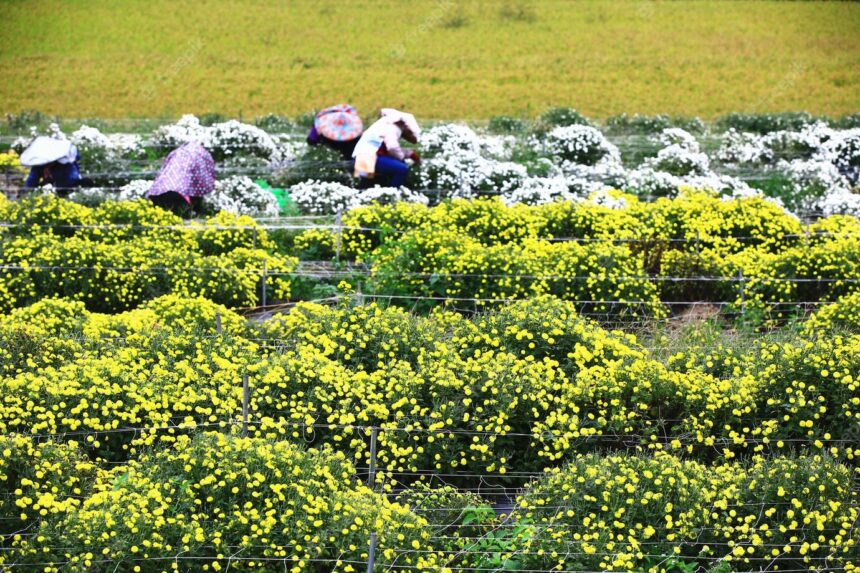Floriculture and nursery crops play a significant role in growing and beautifying South Africa. These industries encompass the cultivation, production, and sale of flowers, ornamental plants, and trees for various purposes, including landscaping, home decoration, events, and the cut flower market. Let’s explore how floriculture and nursery crops contribute to South Africa’s economy and aesthetics.
- Economic Impact: Floriculture and nursery crops contribute to the country’s economy through various channels:
- Employment: These industries generate substantial employment opportunities, both in rural and urban areas, involving farm workers, greenhouse technicians, florists, and sales staff.
- Export Revenue: South Africa is known for its diverse and high-quality floricultural products. The export of flowers and ornamental plants brings in foreign currency, contributing to the country’s balance of payments.
- Entrepreneurship: Floriculture and nursery crops provide avenues for entrepreneurship, allowing individuals to establish and operate their own flower farms, nurseries, or floral businesses.
- Tourism and Aesthetics: The beauty of South Africa’s landscapes is enhanced by floriculture and nursery crops:
- Landscaping: Flowers and ornamental plants are essential components of landscaping, enhancing the visual appeal of parks, gardens, public spaces, and private residences. The vibrant colors and diverse plant species contribute to the country’s natural beauty.
- Tourism Attraction: South Africa’s renowned natural attractions, such as botanical gardens, national parks, and nature reserves, often feature well-maintained gardens with a rich variety of indigenous and exotic plants. These attractions draw local and international tourists, boosting the tourism industry.
- Events and Celebrations: Floriculture plays a crucial role in decorating venues for various events, including weddings, festivals, and cultural celebrations. Fresh flowers, potted plants, and floral arrangements add elegance and ambiance to these occasions.
- Biodiversity Conservation: Floriculture and nursery crops can support biodiversity conservation efforts:
- Native Species Conservation: Nurseries play a vital role in propagating and preserving indigenous plant species, some of which may be endangered or threatened. By cultivating and promoting native plants, these industries contribute to the conservation of South Africa’s biodiversity.
- Exotic Species Introduction: While native plants are prioritized, the introduction of non-invasive exotic species can enhance the diversity and aesthetic value of gardens and landscapes. Careful selection and management are necessary to prevent negative impacts on local ecosystems.
- Agricultural Innovation and Technology: Floriculture and nursery crops encourage innovation and the adoption of advanced agricultural practices:
- Greenhouse Technology: Many flower farms and nurseries utilize greenhouse structures to control environmental conditions, optimize production, and extend the growing season. These technologies enhance crop quality, yield, and resource efficiency.
- Breeding and Genetics: Continuous research and development in plant breeding and genetics lead to the development of new flower varieties and cultivars with improved traits such as color, fragrance, disease resistance, and extended shelf life.
- Sustainable Practices: The industry is increasingly adopting sustainable practices, such as water conservation, integrated pest management, and organic cultivation methods. These initiatives reduce environmental impact and promote long-term viability.
In conclusion, floriculture and nursery crops have a multi-faceted impact on South Africa. They contribute to economic growth, job creation, tourism attraction, biodiversity conservation, and agricultural innovation. These industries bring color, beauty, and aesthetic appeal to the country’s landscapes, enhancing the quality of life for both residents and visitors.
Join 'Farmers Mag' WhatsApp Channel
Get the latest Farming news and tips delivered straight to your WhatsApp
CLICK HERE TO JOIN






